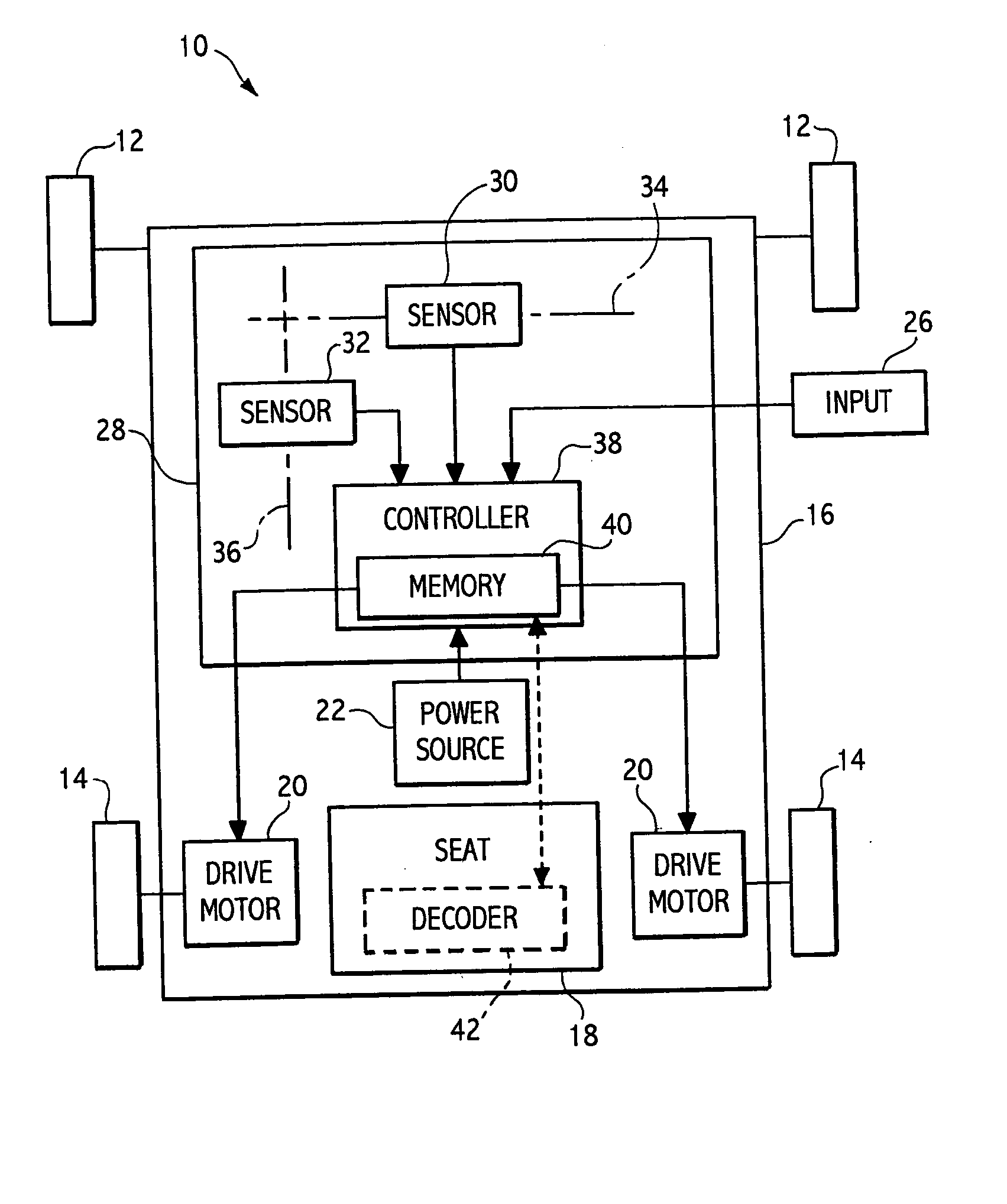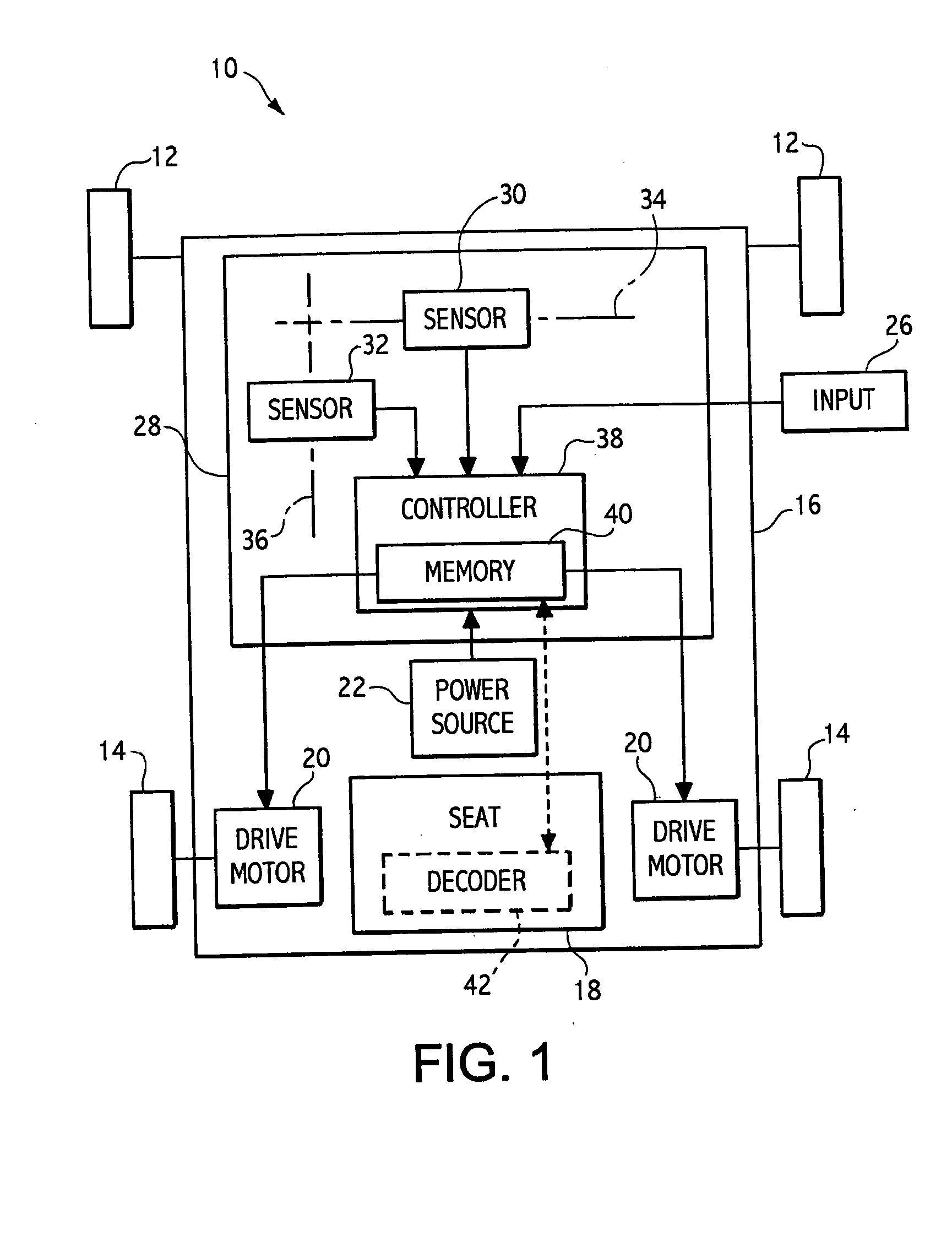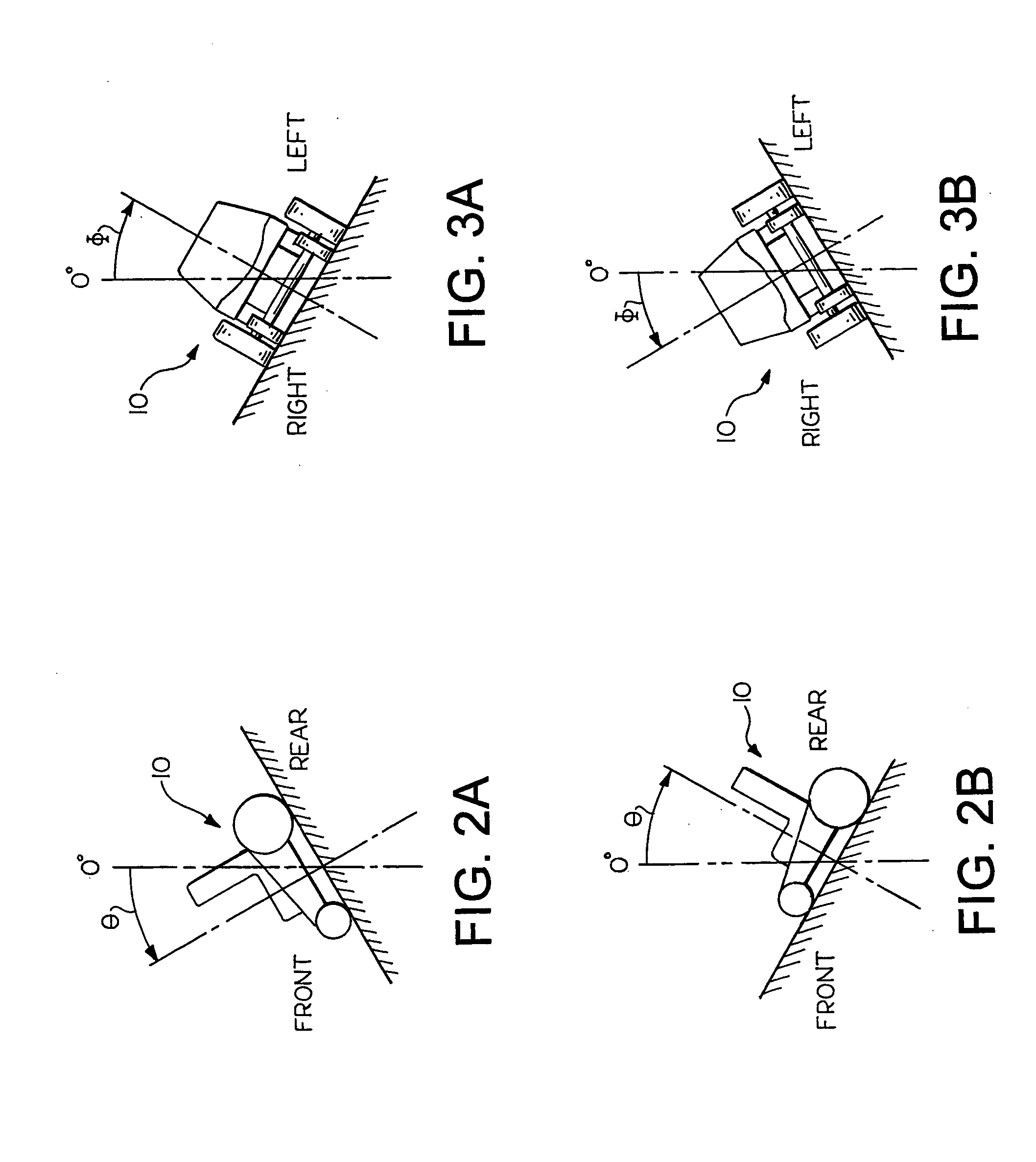Active stability wheel chair based on positive angle sensors
a positive angle sensor and active stability technology, applied in the field of motor vehicles, can solve the problems of corrupting the signal of the accelerometer, using three orthogonal positioned accelerometers, and not being robust enough
- Summary
- Abstract
- Description
- Claims
- Application Information
AI Technical Summary
Problems solved by technology
Method used
Image
Examples
Embodiment Construction
[0016] Referring now to the drawings, there is diagrammatically represented in FIG. 1 a power wheelchair 10 having casters 12 and driven wheels 14 mounted for rotation on a frame 16, which supports a seat 18, preferably an articulating seat, for carrying a wheelchair occupant. The driven wheels 14 are driven by drive motors 20, which are powered by a power source 22, such as a conventional DC battery. The driven wheels 14 may be differentially driven to steer the wheelchair 10. Alternatively, steering motors 24 may be provided for steering the driven wheels 14.
[0017] The operation of the driven wheels 14 depends on input data received from a user via an input device 26. The input device 26 provides an input signal, which corresponds to the input data, to a power wheelchair control system 28. The control system 28 includes one or more on-board devices, such as absolute angle sensors, or tilt and roll sensors, such as the inclinometers 30, 32 shown. The inclinometers 30, 32 are mount...
PUM
 Login to View More
Login to View More Abstract
Description
Claims
Application Information
 Login to View More
Login to View More - R&D
- Intellectual Property
- Life Sciences
- Materials
- Tech Scout
- Unparalleled Data Quality
- Higher Quality Content
- 60% Fewer Hallucinations
Browse by: Latest US Patents, China's latest patents, Technical Efficacy Thesaurus, Application Domain, Technology Topic, Popular Technical Reports.
© 2025 PatSnap. All rights reserved.Legal|Privacy policy|Modern Slavery Act Transparency Statement|Sitemap|About US| Contact US: help@patsnap.com



